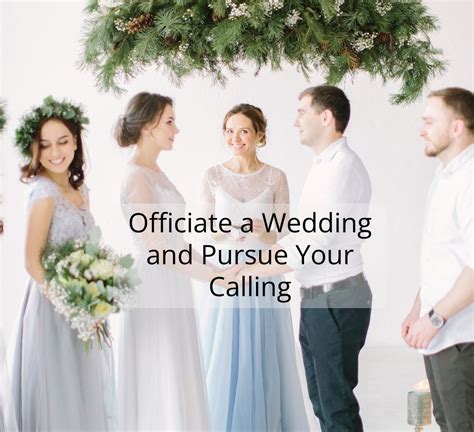How to Become a Marriage Officiant: A Comprehensive Guide
So, you're considering becoming a marriage officiant? It's a rewarding role, allowing you to share in one of life's most significant moments. But what does it actually take? This comprehensive guide will walk you through the process, from understanding the legal requirements to building a successful officiating business.
Understanding the Legal Requirements: The First Step
The process of becoming a marriage officiant varies significantly depending on your location. There's no single, nationwide standard in many countries. This is the most crucial step and requires thorough research.
1. State/Province-Specific Regulations:
This is paramount. Your primary research should focus on the laws in your specific state, province, or territory. Some jurisdictions allow anyone to officiate with minimal requirements, while others have stringent regulations. Look for keywords like "marriage officiant requirements [your state/province]" in your online searches.
You'll need to determine if you need to:
- Obtain a license: Many areas require officiants to obtain a license or permit from a government agency (often the county clerk or equivalent).
- Register with a religious body: If you're affiliated with a religious institution, you may need to be ordained or authorized by that organization.
- Complete specific training: Some areas may mandate or recommend completing specific courses or training programs on marriage laws and officiating procedures.
2. Understanding Legal Responsibilities:
Officiating a wedding involves significant legal responsibility. You're responsible for ensuring the marriage ceremony is legally binding. This includes:
- Correctly filling out marriage licenses: You’ll be handling legal documents, so accuracy is paramount.
- Witnessing signatures: Your signature is essential to validating the marriage certificate.
- Understanding marriage laws: Familiarize yourself with the specific laws regarding marriage in your jurisdiction, including issues such as age requirements, consent, and prohibited marriages.
Building Your Officiant Business: Beyond the Legal
Once you've met the legal requirements, it's time to focus on building your officiating business.
1. Defining Your Brand & Niche:
What makes your officiating style unique? Consider specializing in a niche, such as:
- Religious ceremonies: If you have a strong religious affiliation.
- Secular ceremonies: For those seeking a non-religious celebration.
- Elopements: Focusing on small, intimate weddings.
- Themed weddings: Specializing in a particular style or theme.
2. Creating a Professional Presence:
- Website: A professional website is essential. It should showcase your services, experience, and style.
- Social Media: Use platforms like Instagram and Facebook to connect with potential clients and share your work.
- Networking: Connect with wedding planners, photographers, and other wedding professionals.
3. Pricing Your Services:
Research the going rates in your area to determine a competitive price. Consider factors such as the length of the ceremony, travel expenses, and any additional services you offer.
4. Delivering Exceptional Service:
- Excellent communication: Respond promptly to inquiries and maintain clear communication with couples.
- Personalized ceremonies: Create unique and meaningful ceremonies that reflect the couples' personalities and wishes.
- Professionalism: Be punctual, prepared, and maintain a professional demeanor at all times.
Continual Learning and Growth
The landscape of wedding ceremonies is constantly evolving. Stay updated on legal changes, trends, and best practices. Consider attending workshops or conferences to enhance your skills and knowledge.
Becoming a marriage officiant is a journey. By carefully following these steps, you can establish a successful and fulfilling career, contributing to many couples' most memorable days. Remember, thorough research into your local regulations is the absolute foundation for success.
